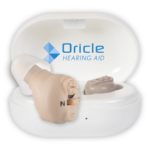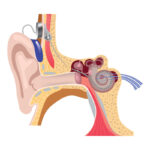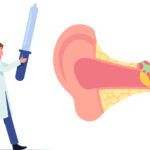Hearing Loss Caused by Alcohol Abuse
Alcohol is a widely used substance that can have negative effects on various parts of the body, including the brain. One of the regions of the brain that can be negatively impacted by excessive alcohol consumption is the auditory cortex. The auditory cortex is responsible for processing sound, and when it is damaged due to alcohol abuse, it can lead to impairments in hearing.
Studies have shown that alcohol can damage the auditory threshold, which is the minimum sound level that can be detected by the ear. This means that individuals who consume excessive amounts of alcohol may experience hearing difficulties or even temporary hearing loss. Furthermore, heavy alcohol consumption can cause damage to the central auditory cortex in the brain, which can result in prolonged processing time and an increased risk of permanent hearing loss.
It is important to note that while alcohol-related hearing impairment may not always be permanent, it can still have a significant impact on an individual's quality of life. In addition to hearing loss, individuals who consume excessive amounts of alcohol may also experience tinnitus, which is a persistent ringing in the ears.
Excessive drinking damages the auditory cortex in the brain
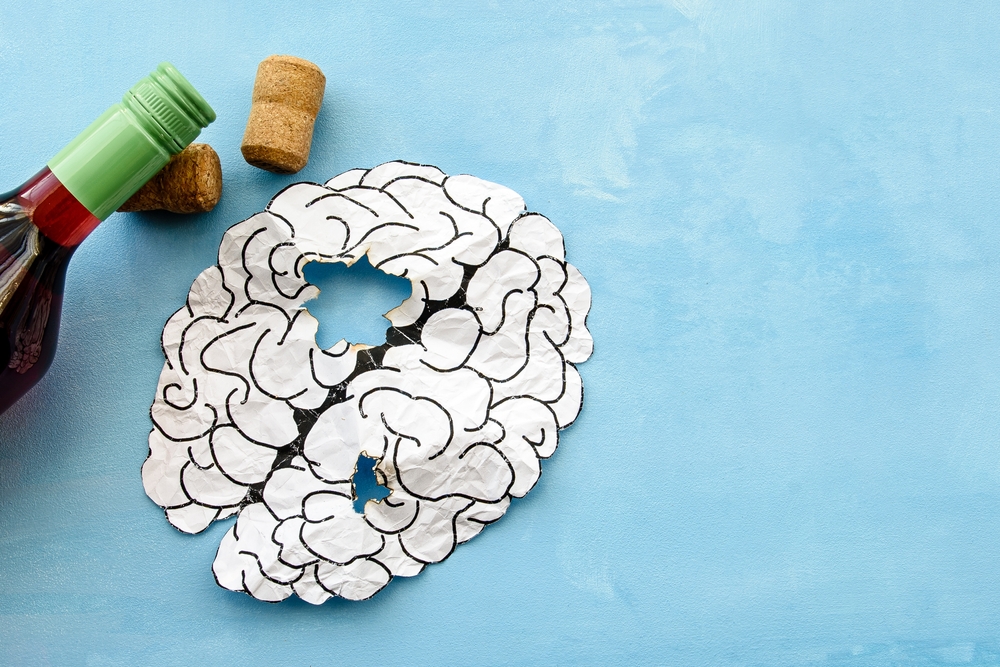
The auditory cortex in the brain is the part responsible for translating sound from the ears into meaningful sounds. Heavy alcohol consumption damages the auditory cortex in the brain, making it less able to process sound signals, resulting in hearing loss. Alcohol also affects the central auditory cortex, causing it to process sounds more slowly, reducing its sensitivity. As a result, drinking too much alcohol leads to other health problems, including chronic diseases.
Research conducted by German scientists has demonstrated that heavy drinking damages the auditory cortex, which delays the processing of sound. This results in impaired hearing, particularly of lower-frequency sounds. The condition is known as cocktail deafness and can lead to permanent damage. The researchers concluded that heavy drinking also damages the auditory cortex, and this damage is not easily reversible. For this reason, research into the effects of alcohol on the auditory system is needed.
When a person drinks heavily for several years, their auditory cortex is damaged. The brain's auditory cortex will begin to shrink. This damage may reverse when the drinker quits drinking, but the hearing loss may hinder recovery. During the recovery process, the damaged auditory cortex will be less efficient at processing sounds. This is the main reason why excessive drinking damages the auditory cortex.
Increases the auditory threshold
It is unclear whether alcohol consumption increases auditory thresholds. Among the various studies conducted, there is limited evidence about the effects of alcohol on hearing. However, a few results suggest that alcohol increases the threshold for auditory discrimination. In addition, alcohol consumption affects lower frequency sounds and monaural signals. The study's main objective was to investigate the behavior-based effects of alcohol on audition. However, the inclusion of a wider range of auditory stimuli allowed inferences regarding the physiological mechanisms underlying alcohol hearing loss.
The researchers performed audiometric tests on healthy adults and alcohol-exposed individuals. While all participants reported an increased auditory threshold after alcohol exposure, the effects were not consistent across frequencies. In addition, the effects of alcohol were more evident on three or more frequencies. Among men and women, the alcohol-induced auditory threshold was higher in the former group. Women were also more affected than men. However, they were not affected as severely as men.
In addition to the increased TTS, alcohol use has been associated with an increased risk of alcohol-induced hearing loss. However, in the US population, moderate alcohol consumption appears to protect against the effects of alcohol on hearing. However, further research is needed to determine the role of moderate alcohol consumption in preventing hearing loss in this population. It is not clear whether moderate alcohol consumption prevents the hearing loss of men. It is not known whether moderate drinking will also help women reduce their risk.
Increases risk of hearing loss
The evidence for an association between alcohol intake and hearing loss remains controversial. A previous study on men showed no association between alcohol intake and hearing loss. However, it did find an association between vitamin B12 intake and the risk of hearing loss. So, what does that mean for the risk of hearing loss? While drinking a moderate amount of alcohol does not appear to increase your risk of hearing loss, drinking more alcohol is associated with a higher risk.
While the relationship between alcohol and hearing loss is complex, the underlying mechanisms are similar. Alcohol increases the risk of hearing loss in both heavy drinkers and low-risk social drinkers. Drinking heavily over a lifetime causes the brain to shrink and causes multiple neurological defects, including damage to the auditory pathways. This in turn leads to hearing loss. Even the brains of non-drinkers are susceptible to damage by alcohol. Fortunately, this damage is reversed when the drinker stops drinking.
While it is still unclear whether alcohol consumption influences the risk of hearing loss, previous studies suggest that moderate alcohol consumption may be associated with cardioprotective effects, such as lower HDL cholesterol. Moderate alcohol consumption may also protect against disturbances in the blood flow to the cochlea. But, there are still many uncertainties about this relationship. The results are not clear and the relationship should be further explored. The research findings are still largely contradictory.
Causes of hearing loss
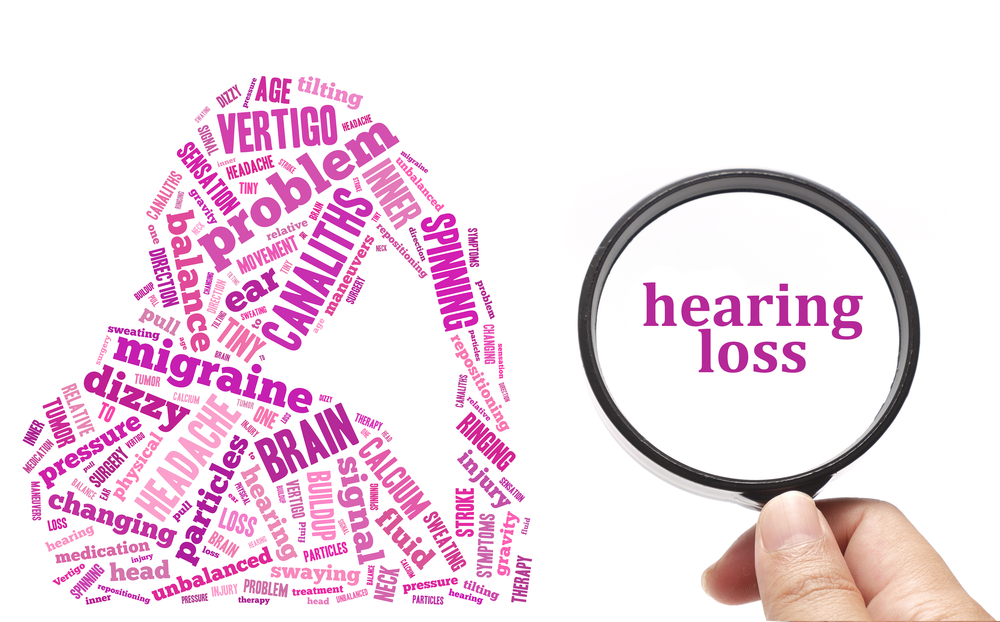
The effects of drinking on hearing are complex. The study of young adults found that prolonged alcohol consumption causes problems processing sounds in the lower auditory register. This condition is called cocktail deafness, and after the participants stopped drinking, their hearing returned to normal. However, continued drinking may cause permanent hearing loss. Drinking in moderation is recommended to prevent hearing loss. Alcohol consumption may also lead to an increase in HDL cholesterol, which may protect the cochlea.
In the inner ear, there are tiny hair cells called stereocilia that convert sound waves into electrical energy that is sent to the brain. The brain then interprets the electrical energy as sound. But excessive alcohol consumption damages these hair cells, and they don't regenerate. Once damaged, alcohol can cause permanent hearing loss. The brain has to spend more time processing sounds and signals as a result. If you're experiencing hearing loss, it's time to talk to a hearing professional. They can screen you for free and discuss strategies to prevent the problem.
People who drink alcohol regularly are at higher risk of experiencing hearing loss. Heavy drinking affects the auditory cortex in the brain, which processes sound. The auditory cortex receives the signals from the inner ear, which transmits the sound to the brain. In the case of alcohol, this damage makes it difficult to process lower frequency sounds. This is known as cocktail deafness. It's not clear whether alcohol is responsible for the damage or not, but heavy drinking has been linked to a number of health problems.
Treatment of Hearing Loss
Depending on the severity of the problem, alcohol use can lead to permanent damage to the central auditory cortex, a vital part of the human brain. Alcohol damage causes the central auditory cortex to take longer to process sound, resulting in impaired hearing and difficulty understanding lower-frequency sounds. This is known as cocktail deafness. Fortunately, alcohol abuse treatment is widely available, and there are a number of resources available to help you recover from alcoholism.
One of the first steps in treating alcohol hearing loss is to learn about its causes. Alcohol damages the delicate hair cells inside the inner ear. Damaged hair cells cannot be repaired or regrow, and this means that alcohol causes permanent damage to hearing. In addition to alcohol-induced hearing loss, young adults who drink too much frequently often experience “cocktail deafness,” a temporary state of impaired hearing. Repeated bouts of cocktail deafness can lead to permanent hearing loss.
The effects of alcohol use on the auditory system are multifaceted, affecting multiple stages of the hearing process. Regardless of whether the ears are functional, alcohol consumption damages the auditory cortex, which processes sound. When the cortex shrinks, the auditory system cannot process sound as effectively as it should. This can result in permanent hearing loss, even if the ear is still functional. Alcohol use also affects the auditory nerve, which transfers auditory information from the inner ear to the brain.
conclusion
In conclusion, excessive alcohol consumption can damage the auditory cortex in the brain, leading to impaired hearing and a higher risk of hearing loss. While the evidence for an association between alcohol intake and hearing loss remains controversial, heavy drinking has been linked to a number of health problems, including chronic diseases. The effects of alcohol use on the auditory system are multifaceted, affecting multiple stages of the hearing process. While alcohol-induced hearing loss may be permanent, treatment for alcohol abuse is widely available, and there are a number of resources available to help individuals recover from alcoholism.
Sources
- Audiology Online. The Effects of Alcohol on Hearing. https://www.audiologyonline.com/articles/effects-alcohol-on-hearing-1237
- The Hearing Journal. Understanding the Link Between Alcohol and Hearing Loss. https://journals.lww.com/thehearingjournal/Fulltext/2018/07000/Understanding_the_Link_Between_Alcohol_and_Hearing.5.aspx


